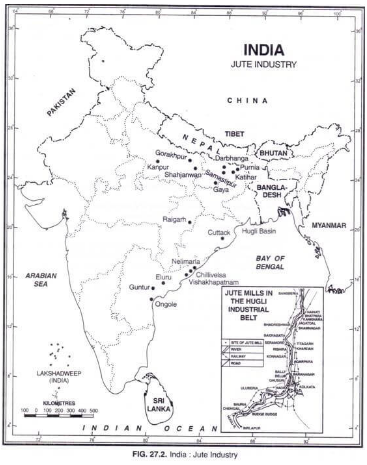Context: Sugar millers have urged the government to totally exempt sugar from the mandatory 20 percent jutebag packaging from the 2023- 24 season.
Why has relaxation been sought?
- The relaxation has been sought on grounds of increase in cost due to use of jute bags and also owing to operational challenges.
- Jute Packaging Materials (Compulsory Use in Packing Commodities) Act, 1987: Under it, the Government is required to consider and provide for the compulsory use of jute packaging material in the supply and distribution of certain commodities.
- It is in the interest of production of raw jute and jute packaging material and of persons engaged in the production thereof.
- 2020: The Cabinet Committee on Economic Affairs chaired by the Prime Minister has approved that 100% of the foodgrains and 20% of the sugar shall be mandatorily packed in diversified jute bags.
Importance of Jute for the domestic economy:

- Jute is a natural, biodegradable, renewable and reusable fiber, and hence fulfills all sustainability parameters.
- The jute industry plays an important role in the domestic economy, especially in states such as West Bengal, Bihar, Odisha, Assam, Tripura, Meghalaya, Andhra Pradesh and Telangana.
- The jute packaging reservation norms account for direct employment to 3.7 lakh workers and several lakh farmers.
Geography of Jute in India:
- Production:
- It is mainly concentrated in eastern India because of the rich alluvial soil of Ganga-Brahmaputra delta.
- Major Jute Producing states: West Bengal, Bihar, Odisha, Assam, Andhra Pradesh, Meghalaya and Tripura.
Conditions for Jute Production:
- Temperature Range: Between 25-35°C
- Rainfall Range: Around 150-250 cm
- Soil Type: Alluvial soil.
News Source: Business Standard
![]() 21 Aug 2023
21 Aug 2023
